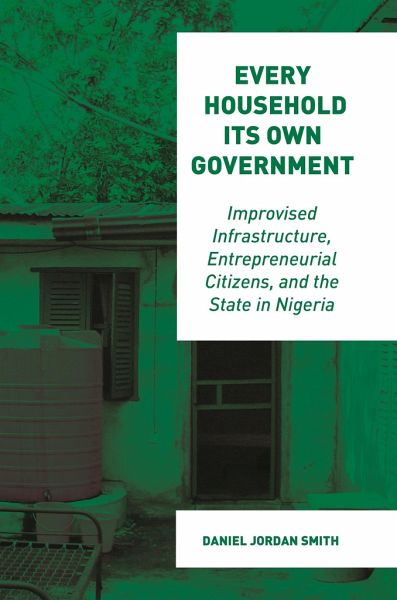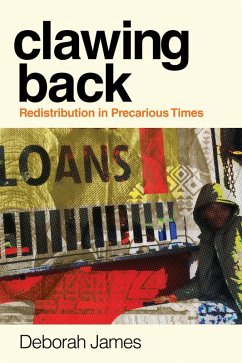
Every Household Its Own Government
Improvised Infrastructure, Entrepreneurial Citizens, and the State in Nigeria

PAYBACK Punkte
14 °P sammeln!
An up-close account of how Nigerians’ self-reliance in the absence of reliable government services enables official dysfunction to strengthen state power When Nigerians say that every household is its own local government, what they mean is that the politicians and state institutions of Africa’s richest, most populous country cannot be trusted to ensure even the most basic infrastructure needs of their people. Daniel Jordan Smith traces how innovative entrepreneurs and ordinary citizens in Nigeria have forged their own systems in response to these deficiencies, devising creative solutions ...
An up-close account of how Nigerians’ self-reliance in the absence of reliable government services enables official dysfunction to strengthen state power When Nigerians say that every household is its own local government, what they mean is that the politicians and state institutions of Africa’s richest, most populous country cannot be trusted to ensure even the most basic infrastructure needs of their people. Daniel Jordan Smith traces how innovative entrepreneurs and ordinary citizens in Nigeria have forged their own systems in response to these deficiencies, devising creative solutions in the daily struggle to survive. Drawing on his three decades of experience in Nigeria, Smith examines the many ways Nigerians across multiple social strata develop technologies, businesses, social networks, political strategies, cultural repertoires, and everyday routines to cope with the constant failure of government infrastructure. He describes how Nigerians provide for basic needs like water, electricity, transportation, security, communication, and education—and how their inventiveness comes with consequences. On the surface, it may appear that their self-reliance and sheer hustle render the state irrelevant. In reality, the state is not so much absent as complicit. Smith shows how private efforts to address infrastructural shortcomings require regular engagement with government officials, shaping the experience of citizenship and strengthening state power. Every Household Its Own Government reveals how these dealings have contributed to forms and practices of governance that thrive on official dysfunction and perpetuate the very inequalities and injustices that afflict struggling Nigerians.













